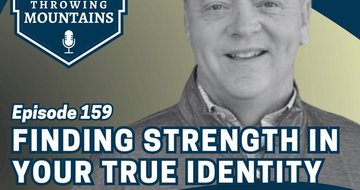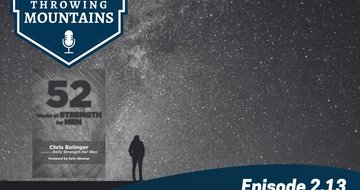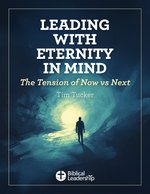Sleep is the secret leadership weapon no one’s talking about. So let's talk about it.
Your words of encouragemtn might be the words that can make a difference in one’s day and maybe even one’s life.
Leaders are often in positions of influence, but that doesn't mean they are leading well. Many leaders have few or no close friends and no real accountability. And they are miserable. Why is that?
When the unexpected happens, you can respond on these five ways to stay faithful and make the next wise decision.
Many of us grew up in a fear-motivated faith. In this post, we discuss one of the biggest problems facing our spiritual lives.
Doug Hagedorn shares six valuable lessons he learned during a most recent season of life. What he shares will help guide others as they seek God's calling.
Why do leaders get discouraged and distracted? Christian Muntean looks at how to overcome the most common leadership difficulties.
Here are three things I’ve learned about my personal leadership ceilings and how to break through them.
Many leaders have so many plates spinning that there’s no time to relax. It’s constant go, go, go. What if there was a better way? What if you could better manage your time so you had more time to do things only you can do?
When you say, “I hate meetings!” your team could be receiving a message that might be damaging your culture more than you ever realized.
We all have made poor choices, and wrong decisions in our lives. But God can and will use even our poor choices and wrong decisions to bring us to the place where we are, a place where we now have the chance for recovery, and a new life with Jesus in control of their lives.
Momentum can be deceiving. When you have it you think you always will. When you don’t you feel like you’ll never get it.
If you are a senior adult and find yourself disturbed by this conversation, please know that I am one of you.
Why is it important to listen to all perspectives and cultures in a church before making a change or perceived innovation? This is why.
You’ve probably experienced feelings of doubt and discouragement that impact your view of yourself and God. When this happens, it is important to recognize the lies and remind yourself of the promises and truths in God’s Word.
Many of you will go to work today. What do you think is your mission at work? Have you even thought about work this way before? If you haven't, now is a good time to begin.
Here's what you can learn from 2 Kings about character, decision-making and God’s lasting sovereignty.
Every time we say the Lord’s Prayer, we ask for God’s will to be done, on earth as it is in heaven. So what is God’s will?
A Barna study reveals that preteens are “on track to abandon biblical Christianity in record numbers.” Let’s not sit back while this happens.
Often with age comes aches and pains. In this article, Richard Blackaby shares some of his current struggles with back pain and asks the question every readers should ask: How might God use your currenct circumstances?






















